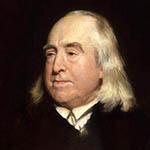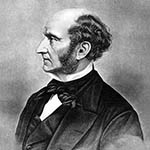An Introduction to Utilitarianism
From Theory to PracticeWhat is Utilitarianism?
Utilitarians want all lives to go as well as possible, counting everyone’s well-being equally. On this view, what matters most is bringing about the best overall consequences by improving the lives of sentient beings—regardless of their gender, race, nationality, or even species.
Textbook overview
This peer-reviewed, open-access textbook introduces modern utilitarianism in a concise and engaging way, making it both accessible for undergraduates and informative for advanced readers. It avoids philosophical jargon where possible and provides definitions where necessary.
The 2024 print edition of this textbook is available from Hackett Publishing, featuring all the core textbook chapters from this website.
“This textbook is the perfect introduction to utilitarianism: comprehensive, critical and accessible as a basis for classroom discussion or public debate.”
“This is a truly excellent book…No other book on utilitarianism—and perhaps no other book in normative ethics—is so clear, comprehensive, and convincing.”
Acting on Utilitarianism
Utilitarianism has important implications for how we should think about leading an ethical life. Because utilitarianism weighs everyone’s well-being equally, it implies that we should make helping others a very significant part of our lives.
There are many pressing problems in the world today. Unfortunately, because our resources are scarce, we cannot solve all the world’s problems at once. What is more, not all ways of helping others are equally effective. According to utilitarianism we should carefully choose which problems to work on and by what means, based on how we can most improve lives, each counting equally. This involves taking seriously the question of how we can best use our time and money to help others.
A few moral projects appear especially pressing by utilitarian lights, such as fighting extreme poverty, reducing the suffering of animals on factory farms, and, in particular, protecting and improving the long-term future. Future people greatly outnumber those who are alive today, and we may be able to improve their well-being. Therefore, one key concern for utilitarians is to promote the well-being of not only the current generation but of all generations to come.
Addressing these problems may involve donating generously to effective charities, choosing your career based on how to most help others, and encouraging other people to do the same.
“The core precept of utilitarianism is that we should make the world the best place we can. That means that, as far as it is within our power, we should bring about a world in which every individual has the highest possible level of well-being.”
“Utilitarianism is a great idea with an awful name. It is, in my opinion, the most underrated and misunderstood idea in all of moral and political philosophy.”
Utilitarian Thinkers
“The sentiment to which [the utilitarian] appeals is generalized benevolence, that is, the disposition to seek happiness, or… good consequences, for all mankind, or perhaps for all sentient beings.”
Who We Are
This peer-reviewed, open access textbook was written by Richard Yetter Chappell, Darius Meissner, and William MacAskill. Richard is an Associate Professor in Philosophy at the University of Miami and holds a PhD from Princeton University. Darius holds a degree in Philosophy, Politics and Economics from the University of Oxford and an M.A. in Security Studies from Georgetown University. William is an Associate Professor in Philosophy and Senior Research Fellow at the Global Priorities Institute at the University of Oxford.
We’re proud to have secured endorsements from prominent scholars, including at Harvard University, Princeton University, and New York University.
Read more about us.




























